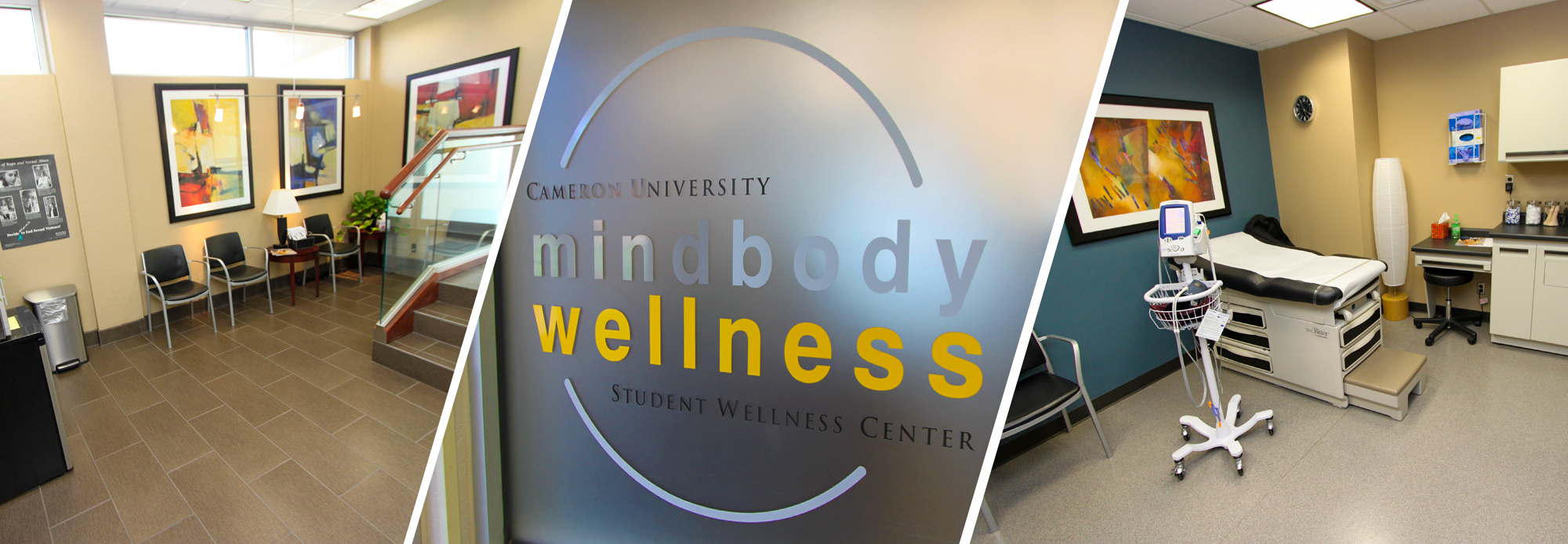Sexual Assault
Sexual assault is a general term that includes any forced or unwanted sexual activity, including rape, incest, sexual abuse, and molestation. Sexual assault includes any forced or unwanted touching of an intimate part of the body.
Rape is forced sexual intercourse. A rapist can be a stranger or someone the victim knows including a spouse, date, or family member. Anyone may be a victim of rape: women, men or children, straight or gay.
Consent is the voluntary agreement to engage in sexual activity without abuse or exploitation of trust, power or authority, coercion or threats. Consent can also be revoked at any moment.
CU Resources
Student Wellness Center North Shepler 101 (580) 581-6725
Campus Police South Shepler 108 (581) 581-2911
Equal Opportunity Office Howell Hall 210 (580) 581-6712
Student Development Office North Shepler 314 (580) 581-2209
Other Resources
Comanche Nation Women's Shelter (580) 492-3590 New Directions (580) 357-8127
You have the right to survive. As a survivor or patient you have several rights:
- The right to protection from intimidation and harm.
- The right to be informed concerning the criminal justice process.
- The right to reparations.
- The right to preservation of property and employment.
- The right to due process in criminal court proceedings.
- The right to be treated with dignity and compassion.
- The right to counsel.
As a victim of the crime of rape or forcible sodomy, you have certain rights. These rights are as follows:
- The right to request that charges be pressed against your assailant;
- The right to request protection from any harm or threat of harm arising out of your cooperation with law enforcement and prosecution efforts as far as facilities are available and to be provided with information on the level of protection available;
- The right to be informed of financial assistance and other social services available to victims, including information on how to apply for the assistance and services;
- The right to a free forensic medical examination; and
- The right to be informed by the district attorney of other victim's rights available pursuant to Section 142A-2 of Title 21 of the Oklahoma Statutes.
Reactions to Sexual Assault
- Emotional Shock Feel numb, calm, and can't cry
- Disbelief Did it really happen, why me
- Embarrassment What will people think, I can't tell my family
- Shame I feel dirty, there is something wrong with me, I want to wash my hands all day long
- Guilt I did something to make this happen
- Depression Feel tired and hopeless
- Powerlessness Will I ever feel in control again
- Disorientation Can't sit still, having trouble getting through the day, overwhelmed
- Retriggering Keep having flashbacks
- Denial Wasn't it "just" a rape
- Fear Will I get pregnant or VD, am I safe, will I ever want to be intimate again, will I ever get over this, am I going crazy, I have nightmares
- Anxiety Nervous, trouble breathing, muscle tension, can't sleep, nausea, nightmares, bed wetting
- Anger Want to kill him/her
If you are assaulted
One thing that will be nearly impossible to realize at the time is that THIS IS NOT YOUR FAULT. You are only responsible for your actions, not for the actions of the person who harmed you. Not every person who is assaulted lives through it. You did, and that is what is most important.
Self-Care after an assault
- Get to a safe place
- Do not shower, bathe, douche, wash your hands, brush your teeth, or use the toilet. Don't change or destroy clothing. Don't straighten up. As hard as it may be not to clean up, you may destroy important evidence if you do.
- Get medical attention as soon as possible. After 4 days have passed, evidence will not be collected. Testing for sexually transmitted infections and treatments for unwanted pregnancy may still be available to you.
- Contact a trusted friend or family member or call the Student Wellness Center (580) 581-6725 .
- Decide if you want to report to the police. Call 911 and find out the closest hospital that offers sexual assault care. Officers and medical staff may have difficult questions. An officer can take you to the hospital as well. You are allowed to request a male or female officer to speak to.

